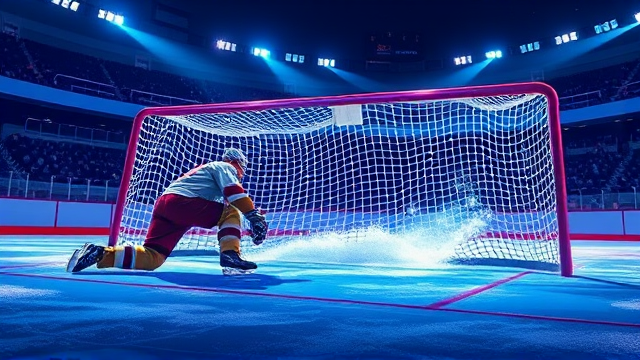Larionov on SKA's Erroneous Goal: 'Finally Got Lucky'
In a stunning twist of fate that will be debated in Russian hockey circles for years, SKA Saint Petersburg snapped Avtomobilist Yekaterinburg's formidable six-game winning streak with a contentious 2-1 victory, a result later officially marred by a significant officiating error that gifted SKA the decisive goal. The pivotal moment arrived at the 46-minute mark, when defenseman Andrey Pedan unleashed a shot of such ferocious velocity that it not only deceived the goaltender but apparently tore through the netting from the outside, a fact confirmed only after the final whistle by the KHL's Department of Judging, which formally declared the goal erroneous.For Head Coach Igor Larionov, the legendary 'Professor' of hockey, the incident provoked a mixture of wry amusement and profound shock, his post-game comments reflecting the bizarre nature of the event; he marveled at Pedan's shot power, comparing it to a bullet that enters and exits in a flash, a weapon his team has desperately lacked, and even contemplated deploying the defenseman on the power play based on that single display of raw force. Larionov's acknowledgment that 'finally, we got lucky somewhere,' delivered with a knowing smile, underscores the fine margins in professional sports, where years of meticulous system play and strategic genius can be undone or, in this case, rescued by a freak occurrence that defies all probability.This incident is not merely a blip in the KHL season but a profound case study in sporting ethics and the limitations of real-time officiating, drawing immediate parallels to infamous NHL moments like the 1999 Brett Hull 'foot in the crease' Stanley Cup winner or more recent goal-line technology controversies in soccer's Premier League, where the finality of the result clashes brutally with the clarity of post-game evidence. The philosophical question it raises is immense: in an era where technology could theoretically review every scoring play with microscopic precision, where do we draw the line between the human fallibility that has always been part of the game's fabric and the pursuit of absolute, unassailable justice? For SKA, a perennial Goliath of the Kontinental Hockey League, this 'lucky break' provides a crucial two points in a tight playoff race, potentially altering the trajectory of their season and providing a psychological boost that statistics cannot quantify, while for Avtomobilist, it represents a brutal theft of a hard-earned point, a demoralizing setback that could haunt them in the final standings.Analyst Dmitry Chesnokov of RT Sport suggests that the pressure on KHL officials is now immense, with calls for expanded video review protocols likely to intensify, forcing a league that prides itself on its physical, fast-paced brand of hockey to confront the technological imperative head-on. Larionov's ultimate resignation—'the game cannot be brought back,' he stated—echoes the timeless, frustrating acceptance that defines sports at its core, a realm where the record books are often written in ink, not pencil, regardless of the controversies that accompany the entries. This single goal, a phantom born of a ripped net and human error, thus transcends its immediate context, becoming a symbol of the eternal tension between fortune and skill, a reminder that even in a game governed by systems and analytics, chaos and chance still hold a permanent seat on the bench.
Latest News
The beautiful game is once again caught in the crossfire of global politics, as the Italian national team prepares to host Israel in a 2026 World Cup qualifier
12 minutes ago0 comments
Mike Tomlin’s public bewilderment at the Cleveland Browns trading Joe Flacco to the Cincinnati Bengals wasn’t just a casual aside; it was a declaration of
17 minutes ago0 comments
For Chatham Town, a seventh-tier football club whose last significant FA Cup run concluded in the 1888/89 season when they reached the quarter-finals—a feat
42 minutes ago0 comments
In a breathtaking display of raw athleticism that evoked memories of Barry Sanders' most electrifying runs, Atlanta Falcons rookie sensation Bijan Robinson
1 hour ago0 comments
The Arizona Cardinals' 31-27 loss to the Indianapolis Colts on Sunday felt less like another notch in their four-game losing streak and more like a seismic
2 hours ago0 comments
The NHL’s regular season is heating up, and if last night’s action is any indicator, we’re in for another wild ride.
2 hours ago1 comments
The NFL's Monday Night Football doubleheader concludes with a compelling NFC showdown between the Chicago Bears and Washington Commanders at Northwest Stadium,
2 hours ago0 comments
The Miami Dolphins' season continues to unravel in spectacular fashion, with quarterback Tua Tagovailoa's postgame comments following Sunday's 29-27 loss to
2 hours ago1 comments
It’s quiet here...Start the conversation by leaving the first comment.
